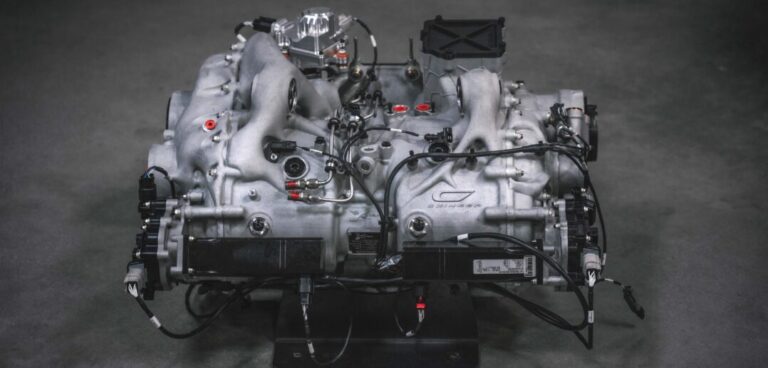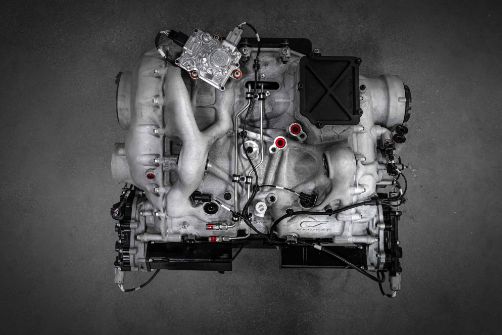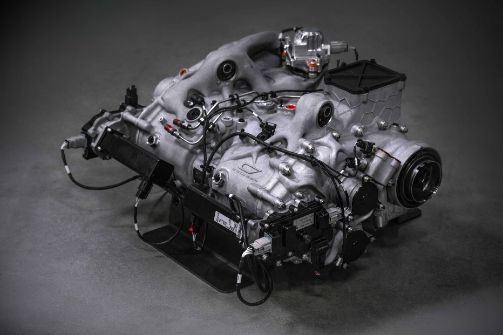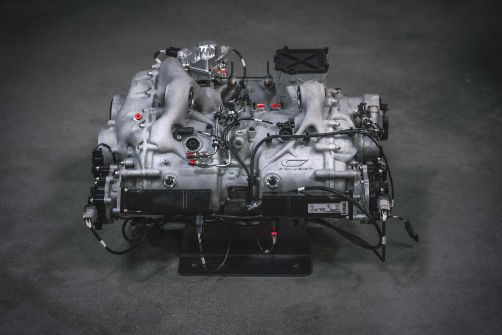Working together, Czinger Vehicles and Xtrac have developed what is stated to be the first topology-optimized and additively manufactured gearbox case. Using a unique printing process, the companies created the casing out of aluminum alloy, delivering mass savings while also providing excellent structural performance, quality and fast printing times.
The new technique eliminates the need for tooling, enabling a significant reduction in development time while providing the option to make real-time design improvements. Through the use of the advanced technology, Czinger aims to deliver a high level of performance with its 21C model.
The automated, 7-speed semi-sequential gearbox features a 48V electrically actuated twin barrel system, with the companies stating that the component is the “fastest automated single clutch synchromesh gearbox in existence”.
The dual barrel gear actuation enables seamless electric vehicle-to-rear drive blending for smoother driving characteristics when the 21C is used on city roads. Sub-100ms shifts, partnered with blending of front-axle EV power, delivers extremely efficient shifting. Czinger and Xtrac also state that the 21C benefits from the highest torque transmitted per mass of gearcase for any road-legal vehicle.
“We are proud to team Czinger’s world-class engineers with those at Xtrac; together, we have developed an incredible, industry-first gearbox that is truly at the pinnacle of performance,” said Lukas Czinger, co-founder and SVP operations, Czinger. “We can’t wait to shatter more track records as we utilize this system in the 21C.”
“What our Xtrac engineers have accomplished in tandem with Czinger and Divergent is groundbreaking,” commented Adrian Moore, CEO, Xtrac. “Xtrac is pleased to be at the forefront of cutting-edge gearbox manufacturing by creating these 3D printed casings. It has been extremely interesting and very stimulating for our engineers working closely together to bring this cutting-edge innovation to life.”





